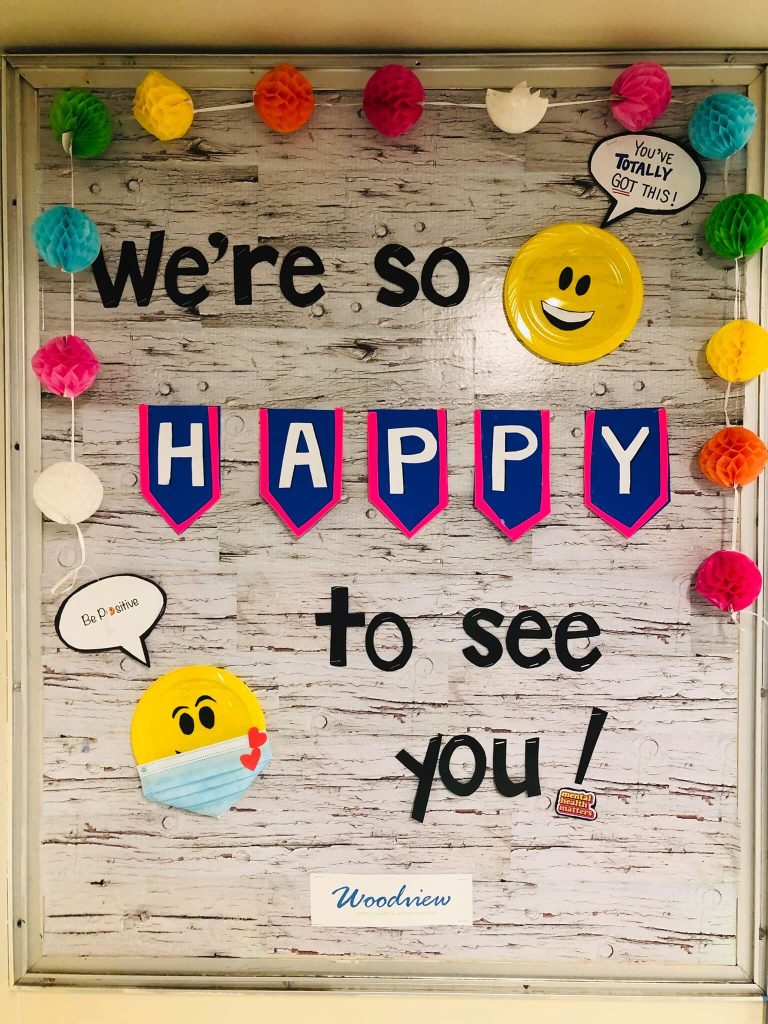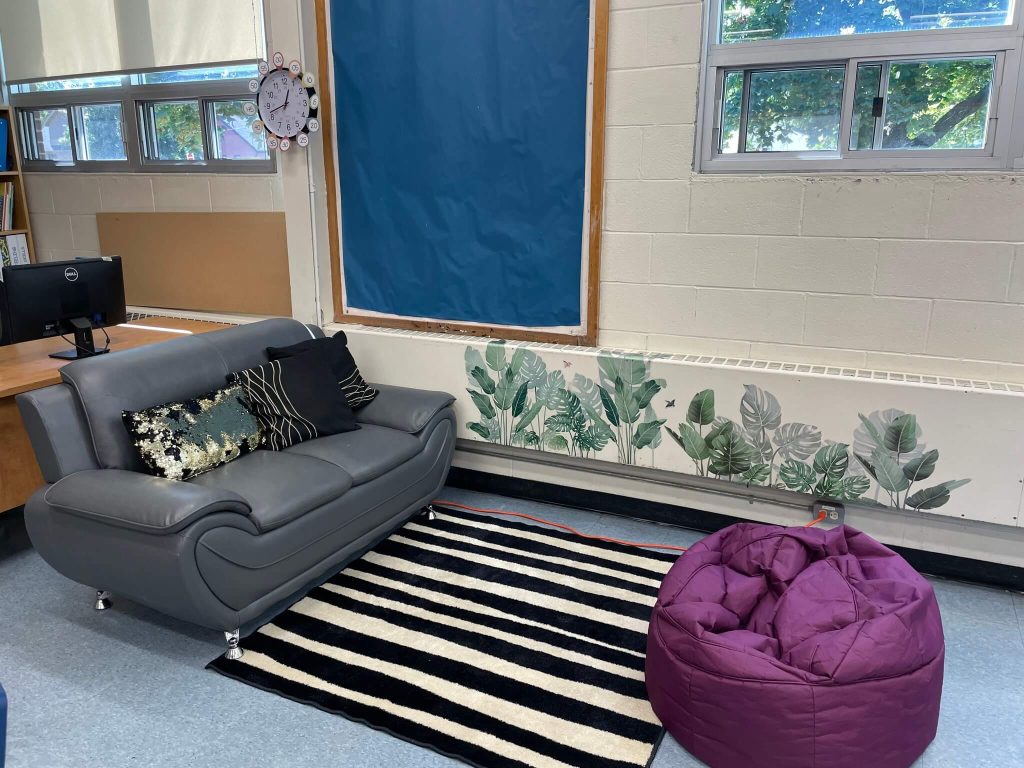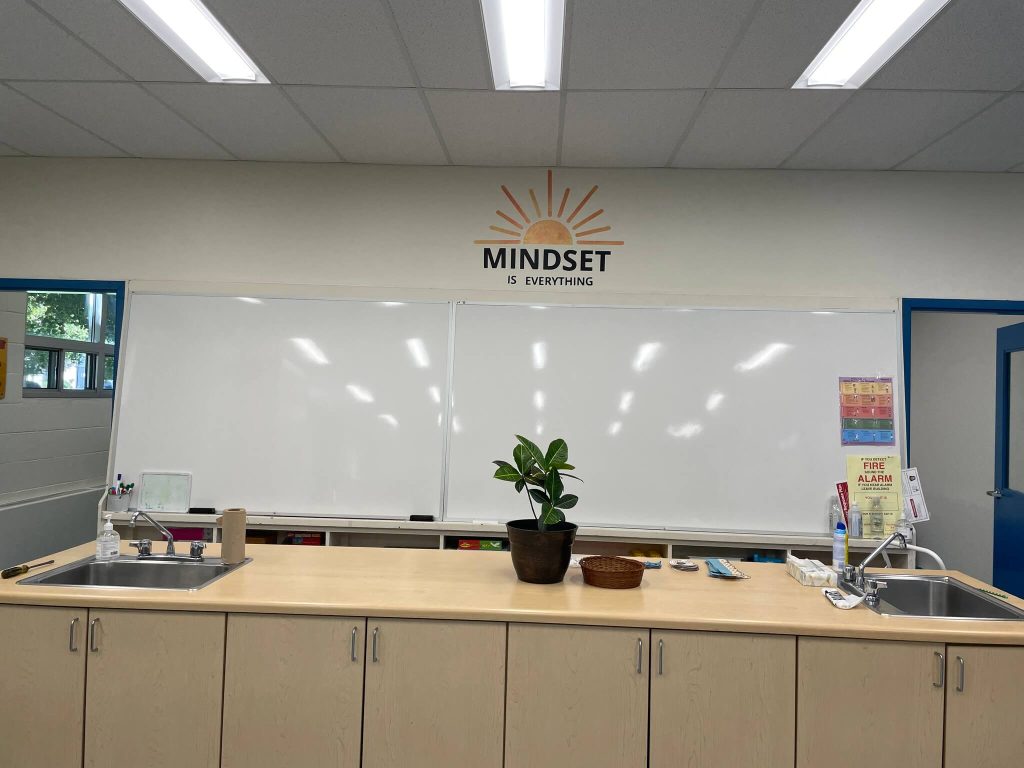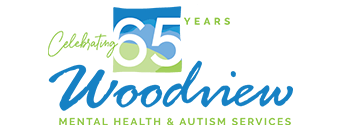Program Profile: Acton Elementary Day Treatment
October 28, 2024
By Melissa Lipovsek, Child & Youth Counsellor, Elementary Day Treatment Program
Somewhere along the way, you may have heard the slogan “It’s worth the drive to the Acton!” Well, we in the Acton Elementary Day Treatment Program couldn’t agree more! We are located within McKenzie Smith Bennet Public School in Acton, Ontario and although we are often considered to be “up north” in respect to the Halton region, our program has had students attending from all areas of Halton and their school boards.
Who We Serve
We are an intensive mental health treatment classroom designed for students aged 7 to 10 years old. Students referred to our program may be experiencing social, emotional or behavioural difficulties which have begun to interfere with their ability to manage while at school and/or at home.

A Comprehensive Approach to Support and Learning
Students attend our program for one academic year. During this time, they remain connected to their community school as regular visits are scheduled in our classroom with their staff. This also provides opportunities for school staff to learn what strategies have been successful for their student in order to support them once they return the next year.
Parents/guardians also participate in our Monthly Parent Group from September to May. This is a psycho-educational group format during which parents have the opportunity to learn the skills and strategies that their child is learning in the classroom in order to practice and reinforce them at home.
Our classroom consists of 6 students, two Child and Youth Counsellors and our classroom teacher from the Halton District School Board (HDSB). The small group setting in our classroom is great as it allows for us to plan plenty of opportunities for community outings. While on these outings, the students are able to practice the social skills, life skills and emotional regulation skills that are learned during group programming. The students also gets to know each other very well and it is incredible to watch the group as they support and encourage each other as the year progresses. Individual therapeutic sessions are also a very important component of the weekly program to support each student in working towards their treatment goals.
Learning Beyond the Classroom
Community guest speakers are another highlight of our program. In the past these have included a community police officer, hair stylist discussing age-appropriate hygiene and providing hair cuts/styling to the students, dental hygienist, fire fighters, musicians, community health nurse and those with lived experiences. We have also invited family members to come in and teach the group a skill or two!



A Safe Space to Grow and Thrive
During our year together in the program, we strive to create a safe space for students to begin to identify and learn about what has made their participation in school or relationships difficult. This journey looks different for everyone, but these may include such things as worries, anger or other big feelings, lowered self esteem, peer conflict or conflict with adults/teachers, to name just a few. We focus on emotional awareness beginning with recognizing body cues and continuously build emotional vocabularies to start labelling feelings. As they say, “You’ve got to name it to tame it!” Students get lots of practice over the year as they learn a variety of distress tolerance skills and strategies that are transferable back to a larger classroom setting and at home. “Mind Set is Everything” is our class motto with a healthy dose of gratitude and growth mindset practiced daily. Self esteem is a primary focus as we give ourselves and others “put ups” several times a day. We celebrate everyone’s successes and encourage students to take safe risks and try new ways of thinking about situations and themselves.
The Journey to Graduation
As we near the end of the school year, the focus is on transitioning back to their community school. The focus during this time is to have supported integration back into their classroom and begin to engage the skills and strategies that they have worked so hard on during their time in the program. When our students graduate from the program, their school and guardians receive a comprehensive package detailing the skills and strategies they have learned, what has been most successful and an information booklet for reference and examples. Of course, our biggest celebration of the year is Graduation! Each year our classroom is full of family members, friends and school staff including principals, vice principals, SERT’s, CYC’s, and teachers as we gather to celebrate all of the hard work and growth each student has experience over the course of the program.

What does a day-in-the-life of the program look like?
A day in the life of Acton day Treatment can look very different from one week to the next, but the following routine remains consistent every day:
- Arrival – quiet entry activity and check-in with staff
- Community Circle, morning meeting with a daily theme
- Morning mindfulness activity
- Academic time (alternates between Math or Language or Art)
- Scheduled movement or brain break, snack, and recess
- Zen time
- Therapeutic group program (modified Dialectal Behavioural Therapy (DBT) skills, Social Skills, Life Skills, or Community)
- Daily physical activity, snack, recess
- Zen time
- Academic time, individual sessions
- Gratitude or daily reflection
- Classroom jobs
- Dismissal
Stand Out Memory
We do a lot of work on worries, social skills and self esteem. Before the winter holiday break last school year, our students helped to plan a Community Activity by inviting the classroom down the hall from us to a “Hot Chocolate Social.” Our students served 20 students and their teachers hot chocolate with a choice of toppings and planned various activities around our classroom. Although there was a lot of talk about being nervous about the number of people coming to our room and not being sure if the other students would like them or the activities they planned they were all able to manage. By using strategies learned during therapeutic groups, they were able to work through their anxiety and in the end did not want the other class to leave. This was a specific example that we referred to for the rest of year and they were all so proud of this.
What is the referral process?
Referrals are made through the Halton Access and System Navigation (ASN) service by calling 289-266-0036. Once a referral is considered for the program, the CYC’s will meet with the referring school to gather more information pertinent to current concerns and reasons for the referral. They then visit the school to observe the student in their classroom routine. The program co-ordinator also meets with the family as part of this process. Once all information has been gathered, the team completes the decision process.

